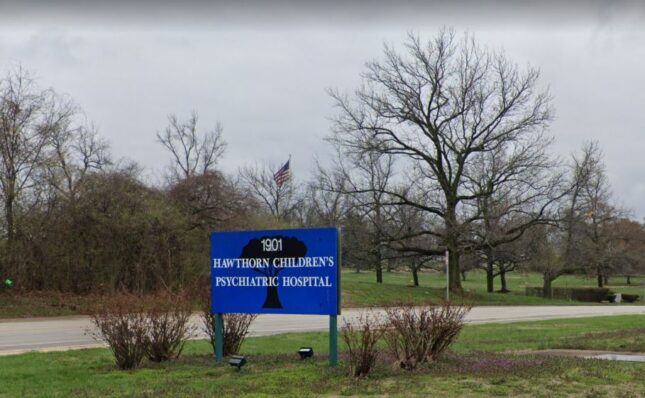
Number of Fellows per Rotation: 1
Length of Rotation: 10.4 weeks
Time of Rotation: First year

Hawthorn Children’s Psychiatric State Hospital cares for children with severe psychopathology who have often failed traditional acute inpatient psychiatric hospitalizations and require a longer length of stay. Hawthorn offers long-term acute hospitalization as well as residential care. Fellows provide care to children and adolescents admitted to the inpatient
units, which provide fellows with an in-depth exposure to the evaluative and treatment modalities used in intensive inpatient child and adolescent psychiatry. This rotation will expose fellows to a broad variety of developmental problems, youth psychopathology, and to the full range of treatment modalities used to treat inpatients, including pharmacotherapy, behavior modification, family therapy, group therapy, milieu therapy, and psychodynamic therapy.
Objectives
To develop competence in the following areas:
Patient care at Hawthorn is interdisciplinary. The fellow will:
- Learn the provisions of clinical care at Hawthorn.
- Assess patients admitted from emergency room settings.
- Conduct patient and family-centered evaluations of severe child and adolescent psychiatry disorders.
- Observe and interpret family relationships and their pertinence to the child’s presenting problems.
- Appreciate the role of the family in the assessment and treatment of the patient, regardless of their age.
- Produce differential diagnosis and dynamic case formulation of psychiatric symptomatology and appreciate the importance of biologic, psychological, and socio-cultural aspects of symptoms.
- Become familiar with psychopharmacological and psychotherapeutic approaches to severe child and adolescent psychiatry disorders.
- Understand behavior modification and level systems in treatment.
- Plan dispositions for the return to outpatient or a less restrictive care system
The fellow will:
- Gain medical knowledge through a combination of supervised clinical activities, mandatory divisional didactics, and supervised reading of pertinent child and adolescent psychiatry or related literature.
- Know the strengths and limitations of the current Diagnostic and Statistical Manual (DSM) of Mental Disorders diagnostic criteria.
- Understand the appropriate use of laboratory testing.
- Understand the appropriate use of adjunct medical consultation.
The fellow will:
- Participate in supervision, including one-on-one supervision by Hawthorn faculty and other divisional supervision, including individual and group supervision.
- Continue to apprise oneself of current knowledge concerning the pathogenesis and etiology of psychiatric disorders.
- Become familiar with the appropriate use of psychological testing.
- Gain administrative experience in ward management.
- Appreciate historical, cultural, legal, and ethical aspects of inpatient child and adolescent psychiatry.
The fellow will:
- Demonstrate sensitivity and compassion to children and adolescents affected by serious psychopathology and to their families, or their caretakers.
- Continue to develop relationships with other professionals, including supervisors, colleagues, students, professionals in training, and allied professionals.
- Develop intra-professionally by adaptively managing their emotional reactions to severe youth psychopathology.
- Demonstrate the ability to function as a cooperative member of a multi-disciplinary therapeutic team.
- Demonstrate a commitment to continued professional development.
The fellow will:
- Effectively communicate with patients, their families, and all other members of the treatment team.
- Conduct age-appropriate interview techniques, as well as comprehensive mental status examinations on children and adolescents.
- Talk with and obtain a history from patients, family members, and all others involved in the caretaking system of the patient (DFS social worker, teacher).
- Present cases succinctly and accurately.
The fellow will:
- Understand the roles of other mental health professionals, including psychologists, nursing staff, social workers, educational therapists, and activity therapists.
- Interact with social and legal agencies in the management of child and adolescent psychiatric disorders.
Measurement of Objectives
- Standard program evaluations
- Multisource feedback
- Clinical Skills Exams